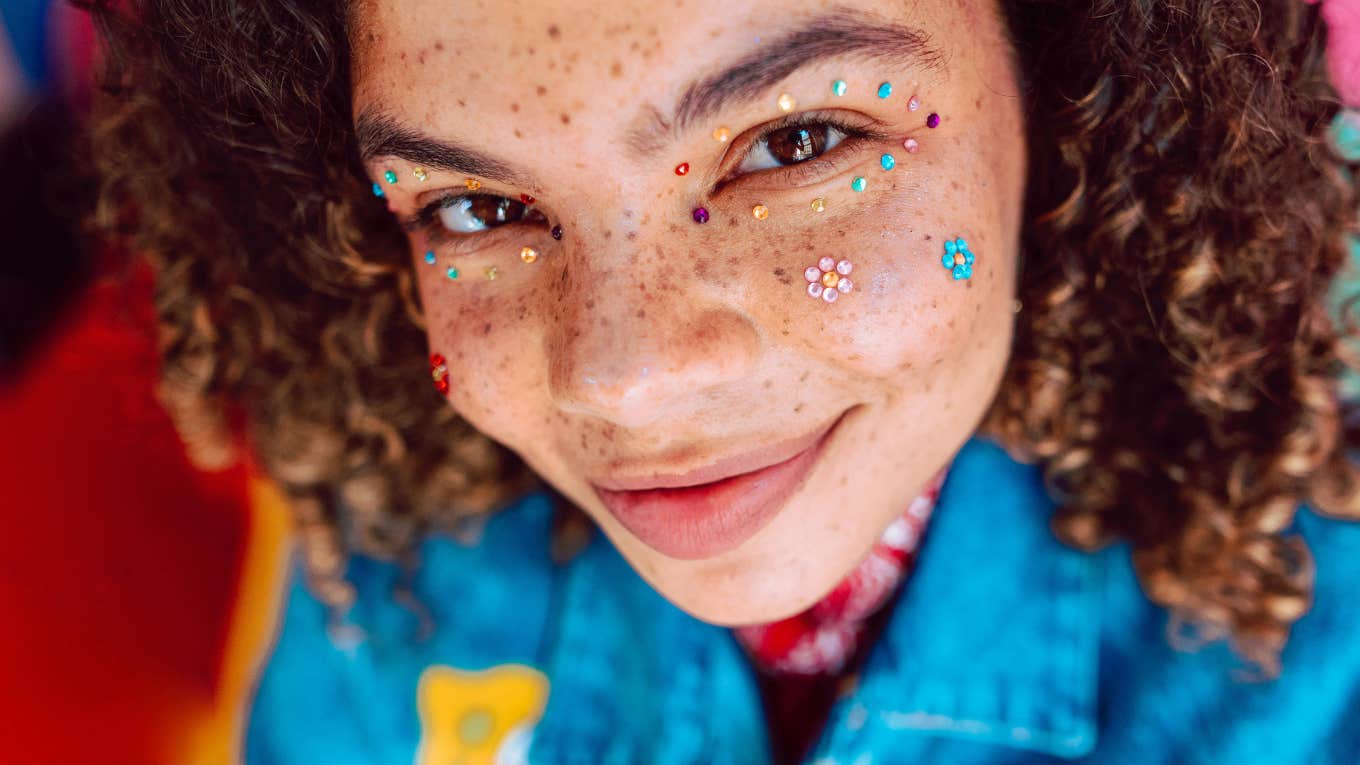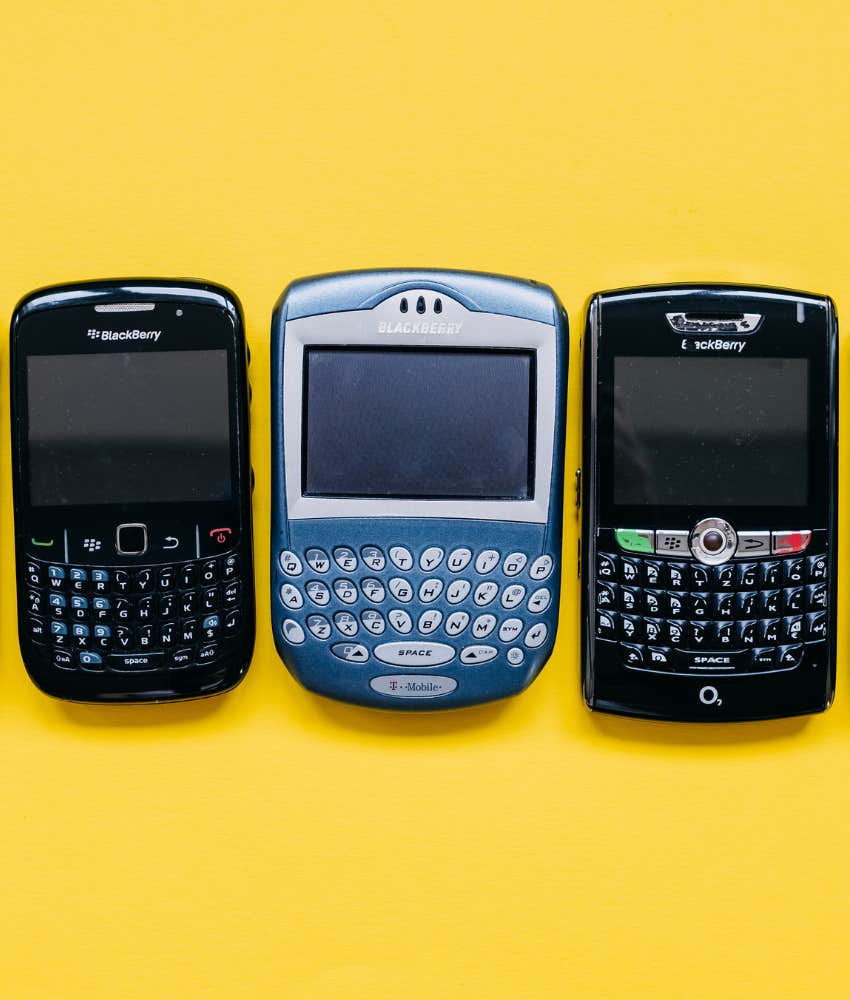Gen Z's Love Of Y2K Aesthetics Has Them Finally Embracing 'Millennial Cringe' With This Once Obsolete Accessory
We've all mostly forgotten about it since the iPhone came out, but Gen Z definitely hasn't.
 RDNE Stock project | Pexels
RDNE Stock project | Pexels Gen Z has become famous among style watchers for its obsession with all things 2000s. The so-called "Y2K aesthetic" has become a fixation of many young people on social media, with all kinds of trends re-emerging that those of us who lived through it the first time aren't exactly enthused about bringing back (low-rise jeans, anyone?).
But recently, Gen Z's love of turn-of-the-century vibes has taken a very unexpected turn, especially for a cohort that is so tech-savvy. Many of these young people, who have practically never known a world without an iPhone, are rolling back the clock to the cellphone archives: the BlackBerry.
Gen Zers are buying the BlackBerry on sites like eBay to relive the 2000s.
It's not been so long since the advent of the iPhone wiped BlackBerry off the map that it's hard to even remember they ever existed, let alone how sought-after and cool they were. The BlackBerry certainly wasn't the first "smartphone." That was IBM's "Simon," which debuted way back in 1994. The term itself was coined by Ericsson in 1997 to launch its GS88, which will remind the truly elderly of the once-beloved Palm Pilot with added phone capabilities.
 Natalia Bostan | Shutterstock | Canva Pro
Natalia Bostan | Shutterstock | Canva Pro
And then, of course, there was the T-Mobile Sidekick, which rocketed to popularity after Paris Hilton and Nicole Ritchie made it a ubiquitous accessory in their Bush-era heyday. But the BlackBerry was the first smartphone to have widespread appeal. It wasn't just hot among the Paris and Nicole wannabes, but with the entire business community too. As its capabilities expanded, it began to be known as the "Crackberry" for how addictive its mix of connectivity and games.
And then, suddenly, it just kind of… vanished. The iPhone debuted in 2007, and the BlackBerry's button-based keyboard and click-wheel design was no match for the sleekness of the iPhone's touchscreen interface. A rapid decline began, and by 2016, the BlackBerry was essentially kaput — until now.
Getting a BlackBerry is part of a wider trend of embracing 'millennial cringe.'
Recently, The New York Times declared "Everything Millennial Is Cool Again" as Gen Z seems to be reversing their stance on the older brothers' and sisters' Y2K and Obama-era aesthetics.
What used to be universally mocked as "Millennial cringe" has turned into a resurgence of trends like skinny jeans, hair accessories, and, yes, bygone technology like wired headphones. (As an old crank who was never willing to pay $300 for bluetooth earbuds I knew damn well would end up rolling down a sewer grate in week one, I feel especially vindicated by that last one.)
The BlackBerry seems to be part of this wider trend. Gen Z'ers on TikTok, where the hashtag #blackberry has well over 125,000 posts, have taken to posting their BlackBerry finds on sites like eBay, some for as little as $40, with explicitly nostalgic takes about how much they miss the phone—or in many cases, how they never got to experience it in the first place.
There's a sense of having missed out on a huge trend for many of these young people, many of whom got their first phones after the advent of the iPhone had already made the BlackBerry feel off-trend. "My first phone was an iPhone in 6th grade, so I never got the chance to get a Blackberry like I always wanted," one such TikToker said in a video. "This has always been a dream of mine."
The BlackBerry fad also seems related to growing discontent among Gen Z'ers about tech addiction.
Dip into the comments on all these posts about BlackBerries, and you start to see a trend having little to do with nostalgia, or, at least, not with nostalgia pertaining to material things like phones. "I fear if they brought these back, social media would never see me again," one person commented. "Bring back the blackberry."
"I would totally switch back to blackberry just to stay off social media and go back to the nostalgic days of not using my phone for every single aspect of my life," another commenter added.
It seems the real nostalgia may not be for a bygone trend but for the freedom of the pre-iPhone, pre-social media era. A time when having a phone was fun, instead of a burden that seems to creep ever further into your life. And this feeling mirrors what studies have found. There is an emerging discomfort with the ubiquity of technology even among those too young to really know a world without it.
A 2024 Harris poll revealed that nearly half of Gen Z wish X and TikTok didn't exist. And an informal survey of Gen Z'ers by Buzzfeed last year generated some truly bracing answers from young people who said they feel they've been robbed of a normal childhood and have no social skills because of the addictive control their devices and social media exert over their lives.
There's even a trend of Gen Z'ers going back to the featureless flip phones from even farther back in the day. The BlackBerry trend makes sense, then. It's a sort of middle ground between the extremes of smartphone addiction and the basics of, say, a Motorola Razr. You can still call, text, email, and game, but you're freed from reflexively staring into the increasingly dark and victimizing abyss the online world has become.
Given that they're the generation that was nearly born into this digitally mediated life, their impulse to leave it behind should say something to all of us. This just may be the Gen Z trend we should all think about jumping on the bandwagon for. We'd probably be better off.
John Sundholm is a writer, editor, and video personality with 20 years of experience in media and entertainment. He covers culture, mental health, and human interest topics.

